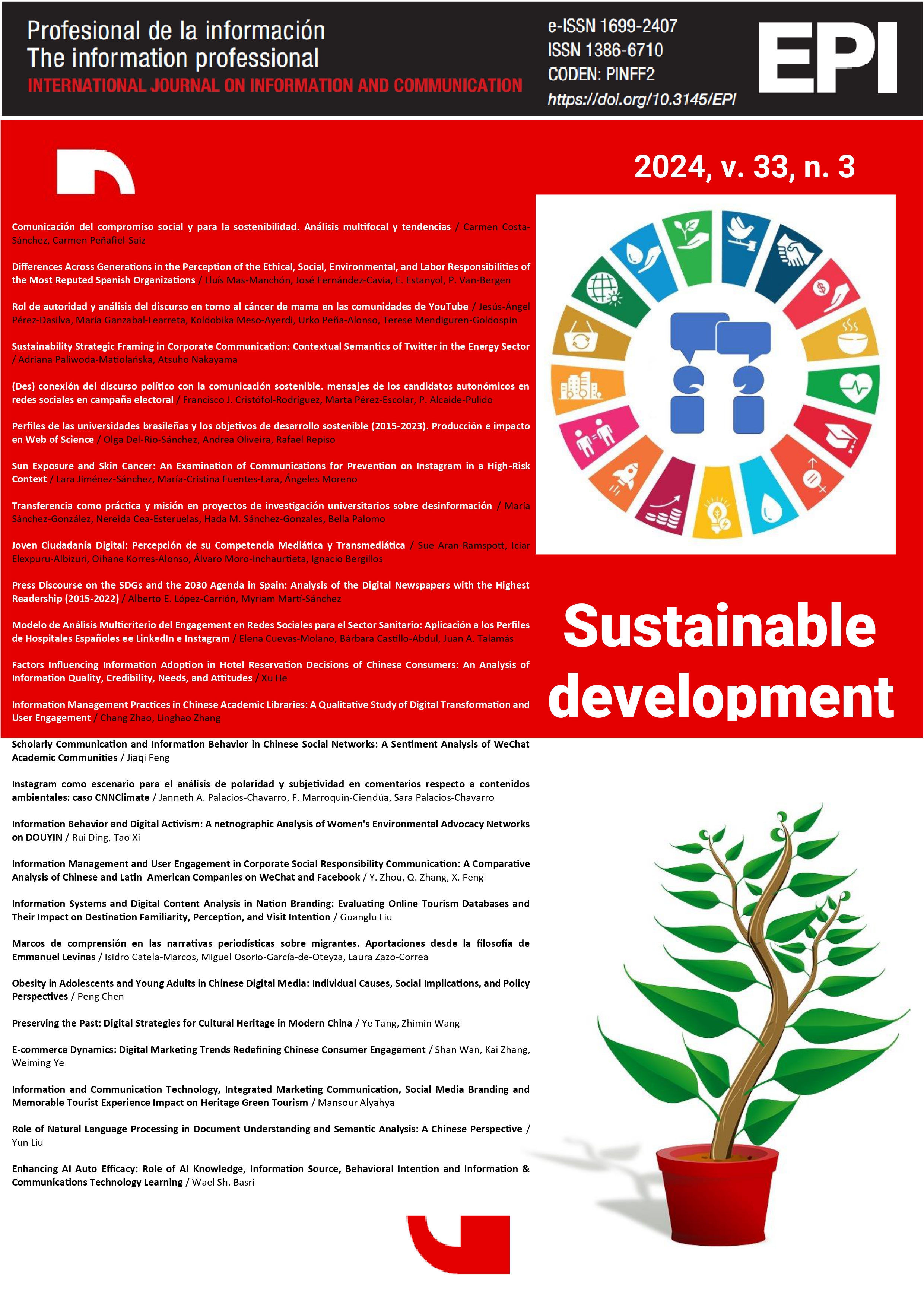Differences Across Generations in the Perception of the Ethical, Social, Environmental, and Labor Responsibilities of the Most Reputed Spanish Organizations
DOI:
https://doi.org/10.3145/epi.2024.0302Keywords:
Generation Z, CSR, Corporate Communication, Stakeholder Theory, Cross-sectional Survey, MERCO, ReputationAbstract
The implementation of integrated corporate communications can be challenging for organizations owing to three
main requirements: (i) genuinely committing with corporate social responsibility (CSR) beyond product profitability,
(ii) effectively integrating the UN 2030 Agenda, and (iii) meeting the expectations of a wide variety of stakeholders,
particularly those belonging to the younger generations. Generation Z is a particularly relevant generation marked
by a context of ongoing technological, information, and social changes, as well as financial, pandemic, and war crises.
The objective of this study is to analyze how the ethical, environmental, social, and labor responsibilities of the most
reputed Spanish organizations are perceived by different generations, with a special focus on Generation Z. To do
so, a nationwide survey was conducted among Spanish adults (N = 5,087) and an analysis of variance (ANOVA) test
was applied to identify dissimilarities across generations. Findings show that Generation Z assesses CSR dimensions
more positively than the other three generations. Also, women of the two older generations (Boomers and
Generation X) assess CSR dimensions more positively than men, while there are no significant gender differences in
Millennials and Generation Z. From a Generation Theory perspective, these findings represent a turning point in the
theoretical rationale that correlates age with the acceptance of organizations’ labor and social commitment. From a
Stakeholder Theory perspective, since this study is conducted on the most reputed Spanish organizations, reputation
can be hypothesized to be a mediating variable when it comes to engaging with younger generations within the
integrated communication paradigm. Although it is important to note that our study did not investigate the
underlying reasons for these differences in perception, our findings demonstrate that generational and gender
differences in CSR perception exist and that companies should take this into account when developing and
communicating their CSR programs.
Downloads
Downloads
Published
How to Cite
Issue
Section
License
Copyright (c) 2024 Profesional de la información

This work is licensed under a Creative Commons Attribution 4.0 International License.
Dissemination conditions of the articles once they are published
Authors can freely disseminate their articles on websites, social networks and repositories
However, the following conditions must be respected:
- Only the editorial version should be made public. Please do not publish preprints, postprints or proofs.
- Along with this copy, a specific mention of the publication in which the text has appeared must be included, also adding a clickable link to the URL: http://www.profesionaldelainformacion.com
- Only the final editorial version should be made public. Please do not publish preprints, postprints or proofs.
- Along with that copy, a specific mention of the publication in which the text has appeared must be included, also adding a clickable link to the URL: http://revista.profesionaldelainformacion.com
Profesional de la información journal offers the articles in open access with a Creative Commons BY license.




